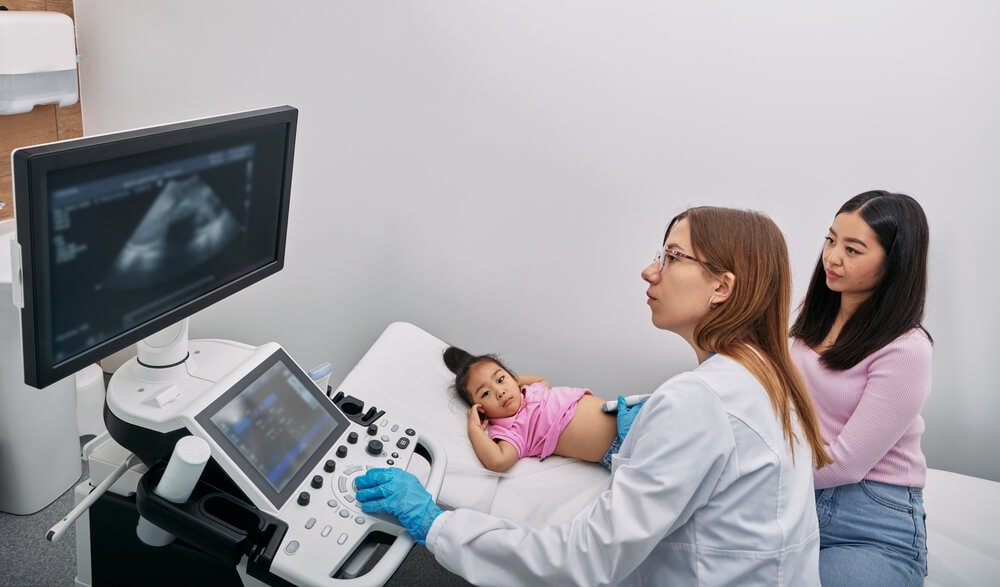Appendicitis Emergency Care in Texas
Best Appendicitis Emergency Care Specialist in Texas
Are you in search of the best appendicitis emergency care specialist in Texas? Run to Aether Health. With a focus on prompt diagnosis and personalized treatment, we stand out as the go-to specialists in Texas for efficient and effective appendicitis care.
Causes of Appendicitis
- Enlarged Lymphoid Follicles: The presence of enlarged lymphoid follicles in the appendix can contribute to inflammation, and this is considered one of the potential causes of appendicitis.
- Gastrointestinal Conditions: Certain gastrointestinal conditions, such as Crohn's disease, can increase the risk of appendicitis.
- Trauma: In some cases, trauma to the abdomen may trigger appendicitis.
- Tumors: Although rare, tumors in the appendix or nearby organs can lead to inflammation and cause appendicitis.
Symptoms of Appendicitis
- Abdominal Pain: The most common symptom of appendicitis is pain in the abdomen, often starting around the belly button and then moving to the lower right side. The pain may become more intense and localized.
- Loss of Appetite: Individuals with appendicitis may experience a significant decrease in appetite.
- Nausea and Vomiting: Feelings of nausea and, in some cases, vomiting are common symptoms associated with appendicitis.
- Fever: A low-grade fever or an elevated body temperature is often present, indicating an inflammatory response.
- Abdominal Swelling: The abdomen may become swollen and tender to the touch as a result of inflammation.
- Constipation or Diarrhea: Changes in bowel habits, such as constipation or diarrhea, may occur in individuals with appendicitis.
- Inability to Pass Gas: Some people with appendicitis may find it challenging to pass gas.
- Painful Urination: In some cases, individuals may experience pain or discomfort during urination, although this is less common.
Appendicitis Diagnosis
Appendicitis diagnosis involves a combination of these methods, with our healthcare professionals using their expertise to determine the most appropriate approach based on the individual’s symptoms and circumstances. Early and accurate diagnosis is crucial for timely intervention and effective treatment.
Rapid Triage and Assessment
Rapid Triage and Assessment
Imaging Studies
- Ultrasound: An abdominal ultrasound may be performed to visualize the appendix and surrounding area.
- CT Scan: Computed tomography (CT) scans can provide detailed images of the appendix and help confirm the diagnosis.
Urinalysis
Pregnancy Test
Diagnostic Laparoscopy
Appendicitis Risk Factors
- Age: Appendicitis can affect individuals of any age, but it is most common in people between the ages of 10 and 30.
- Gender: Males are slightly more prone to developing appendicitis than females.
- Family History: A family history of appendicitis may increase an individual's susceptibility to the condition.
- Obstruction: Blockage of the appendiceal lumen, often due to fecal matter, foreign bodies, or infections, is a significant risk factor.
- Gastrointestinal Conditions: Certain gastrointestinal conditions, such as Crohn's disease, can elevate the risk of appendicitis.
- Infections: Infections in the gastrointestinal tract or elsewhere in the body can contribute to inflammation of the appendix.
- Dietary Factors: Low-fiber diets may be associated with an increased risk of appendicitis.
- Smoking: Some studies suggest that smoking may be a risk factor for appendicitis.
- Prior Abdominal Surgery: Individuals with a history of abdominal surgery may have an increased risk of developing appendicitis.
- Enlarged Lymphoid Follicles: Having enlarged lymphoid follicles in the appendix can be a risk factor for inflammation.
Benefits of Our Appendicitis Emergency Medical Care
Prompt and Accurate Diagnosis


Comprehensive and Personalized Treatment
Expert Medical Professionals


Compassionate and Supportive Environment
How We Handle Appendicitis Emergencies
Rapid Triage and Assessment
Specialized Intervention
State-of-the-Art Diagnostic Tools
Individualized Treatment Plans
How Much Does Our Appendicitis Treatment Cost
Here at Aether Health, transparency and accessibility are paramount when it comes to appendicitis treatment costs. We understand the importance of clarity during challenging times, and our commitment to affordable healthcare remains unwavering.
While the exact cost can vary based on individual cases and required interventions, we strive to provide comprehensive and transparent pricing structures. Send us a message for more information.
Why Choose Aether Health For Your Appendicitis Treatment in Texas?
Choosing the right healthcare provider for appendicitis treatment is a critical decision that impacts your well-being. Aether Health in Texas stands out as a premier choice, dedicated to providing exceptional care and ensuring a seamless healing journey.
Comprehensive Expertise and Specialized Care
State-of-the-Art Facilities and Technology
Patient-Centric Approach and Compassionate Care
Transparent Communication and Collaborative Decision-Making
Appendicitis Emergency Care FAQs
Why is prompt medical attention crucial when suspecting appendicitis?
Timely medical attention is vital when appendicitis is suspected due to the risk of complications. Appendicitis can progress rapidly, and prompt intervention reduces the likelihood of the appendix rupturing, leading to more severe complications such as infection or peritonitis.
Can appendicitis resolve on its own, or is emergency care always necessary?
Appendicitis typically requires medical intervention, as it seldom resolves on its own. Without prompt treatment, the inflamed appendix can rupture, leading to serious complications. Emergency care is essential to prevent the progression of the condition and ensure a timely and effective recovery.
What diagnostic tests are performed during an emergency visit for suspected appendicitis?
Emergency diagnostic tests for suspected appendicitis often include a combination of physical examinations, blood tests, imaging studies (such as ultrasound or CT scans), and sometimes diagnostic laparoscopy. These assessments aid in confirming the diagnosis and determining the appropriate course of treatment.
How is appendicitis treated in an emergency care setting, and what can I expect during the intervention?
Treatment for appendicitis in an emergency care setting often involves surgical intervention, specifically an appendectomy. This procedure removes the inflamed appendix. The surgery is generally well-tolerated, and patients can expect a swift recovery with appropriate postoperative care.
Can appendicitis occur in children, and how does emergency care differ for pediatric cases?
Yes, appendicitis can occur in children. Emergency care for pediatric cases involves age-appropriate diagnostic procedures and surgical interventions. While the principles of prompt diagnosis and intervention remain consistent, the approach may be adapted to suit the unique needs of children.
Is surgery always required for appendicitis treatment, or are there non-surgical options available?
While surgery, specifically an appendectomy, is the most common treatment for appendicitis, non-surgical options may be considered in certain cases, such as early-stage, uncomplicated appendicitis. However, this approach is carefully evaluated on a case-by-case basis by our healthcare professionals.
Can I take pain relievers at home for suspected appendicitis, or should I avoid self-medication?
It is not advisable to self-medicate for suspected appendicitis. Pain relievers might temporarily alleviate pain but won’t address the underlying issue. Seeking immediate medical attention is crucial for an accurate diagnosis and appropriate treatment tailored to your specific condition.